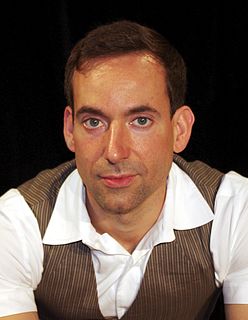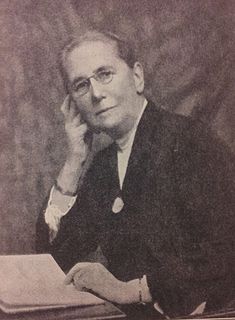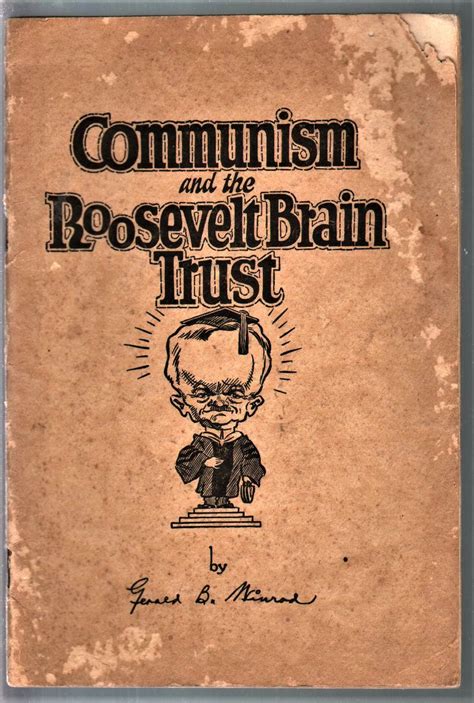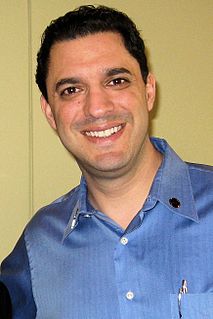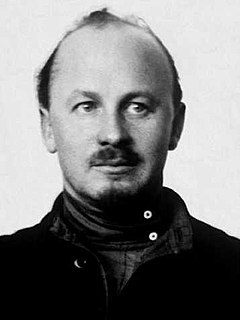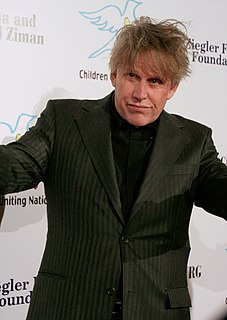A Quote by Stanley Hauerwas
Liberal Christianity, of course, has enemies, but they are everyone's enemies - sexism, racism, homophobia. But liberal versions of Christianity, which can be both theologically and politically conservative, assume that what it means to be Christian qua Christian is to have no enemies peculiar to being Christian.
Related Quotes
If the Christian church is to move responsibly towards the future, it must restore or renew its ties with its past. Contemporary Catholic and Protestant radicals want to claim that Christianity means whatever Christian today happen to believe and practice, be it pantheism, unitarianism, or sodomy. The Christian faith has suffered immeasurable harm because of the tendency of people to use the word Christian in a careless and non-historical way. Nothing in this argument would preclude liberal Protestants and Catholics from developing and practicing any religion they like.
The idea that Christianity is basically a religion of moral improvement... has its roots in the liberal Protestantism of the late nineteenth century and early twentieth century... It is this stereotype which continues to have influence today... But then came the First World War... What had gone wrong was that the idea of sin had been abandoned by liberal Christianity as some kind of unnecessary hangover from an earlier and less enlightened period in Christian history.
That the religious right completely took over the word Christian is a given. At one time, phrases such as Christian charity and Christian tolerance were used to denote kindness and compassion. To perform a "Christian" act meant an act of giving, of acceptance, of toleration. Now, Christian is invariably linked to right-wing conservative political thought -- Christian nation, Christian morality, Christian values, Christian family.
Most of my Muslim friends are politically liberal in a lot of senses. They are far more open-minded than the Christian circles I grew up in, which are, you know, actually scarier. That said, too, I still identify with the teachings of Jesus. I don't think they resemble or relate to modern-day Christianity.
The essence of Christianity is centered upon the Lord Jesus Christ. The sum and substance of being a Christian is trusting Christ with the entirety of one's being. The height of the Christian life is adoring Christ, the depth of it loving Him, the breadth of it obeying Him, and the length of it following Him. Everything in the Christian life revolves around Jesus Christ. Simply put, Christianity is Christ.
It was not Christianity which freed the slave: Christianity accepted slavery; Christian ministers defended it; Christian merchants trafficked in human flesh and blood, and drew their profits from the unspeakable horrors of the middle passage. Christian slaveholders treated their slaves as they did the cattle in their fields: they worked them, scourged them, mated them , parted them, and sold them at will. Abolition came with the decline in religious belief, and largely through the efforts of those who were denounced as heretics.
There is no ground whatever for the claim, so often made by religious apologists, that these ideals are specifically Christian and originated with Jesus. What were specifically Christian were some of the less enlightened teachings, which have done untold harm. Christians claim that organised Christianity has been a great force for good, but this view can be maintained on one assumption only: that everything good in the Christian era is a result of Christianity and everything bad happened in spite of it.
Why should we believe in God? — We hate Christianity and Christians. Even the best of them must be regarded as our worst enemies. They preach love of one's neighbor, and pity, which is contrary to our principles. Christian love is a hinderance to the revolution. Down with love of one's neighbor; what we want is hatred.
In a Christian Theocracy, you'll never be Christian enough. There's always going to be somebody there with another version of Christianity that is more Christian than you and you're going to lose the freedom to make the choice because you didn't defend the Separation of Church and State when you had the chance.





